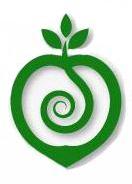Protein Sources
With the number of protein sources available in the developed countries, eating enough protein is not usually an issue. The issue is all the other stuff consumed along with the protein. Sure a burger from your favourite fast food place provides protein, however few will argue that it’s a healthy choice.
Our bones, muscles, skin, blood and other body parts are composed primarily of proteins. Proteins are the foundation for virtually every function the body performs. They are what power the chemical reactions that keep us alive and healthy. In order to survive and stay healthy we have to eat protein.
Amino Acids
Amino acids are the building blocks of proteins. The body requires 22 different amino acids that it can combine in different sequences to make the approximately 10,000 proteins found in the body. Of the 22 amino acids, only 13 are created by the body when needed; the remanding 9 are referred to as essential amino acids and must be obtained from the food we eat. The body doesn't store amino acids, so everyday it’s important to eat the foods that not only supply proteins, but a combination of proteins.
While almost all whole foods contain protein, not all proteins are created equal.
Complete Protein vs Incomplete Proteins
Protein sources are classified by whether they contain all the essential amino acids or not.
Generally, only proteins sourced from animals (meat, fish, dairy products and eggs) contain all 9 of the essential amino acids in the qualities needed to be called complete proteins. However, there are a few plant based protein sources that have complete proteins (quinoa, buckwheat, hemp and chia seed and spirulina).
Most vegetable source proteins lack one or more of the essential amino acids or do not contain enough and are thus called incomplete proteins. These include nuts & seeds, legumes, grains and vegetables. To get a complete compliment of essential amino acids a variety of plant proteins must be eaten every day.
Animal vs Plant Protein
Whether you get protein from plant or animal sources is more a questions of personal preference, ethics and lifestyle. There are arguments that humans are more carnivore than herbivore and therefore animal protein is a more natural fit to our biology. However, animal protein sources may be higher in fats and cholesterol whereas grains are higher in carbohydrates. Also, chemical toxins such as growth hormones and antibiotics may be in animal sources while plant sources may contain insecticides and other chemicals.
For more discussion see Animal vs Plant Protein
Whey Protein
Undenatured whey protein, a by-product of cheese production, has the highest known levels of branched chain amino acids of any natural food source. A high quality whey protein is an excellent source of complete proteins that are easily digested, low in calories and contain minimal carbohydrates and fats.
Soy Protein
Soy protein derived from soybeans, has been touted as a “miracle health food”. Used as the perfect protein for replacing animal proteins. Soy products such as soymilk, soy cheese, soy burgers, soy ice cream and tofu has become a protein staple of vegetarian and vegan diets. The problem is that fermented and unfermented soy impact health very differently. Fermented soy has many documented health benefits whereas any product containing unfermented soy should be avoided. Most products produced in North America use unfermented soy.
Whey Protein vs Soy Protein
Both Whey and Soy are big business in North America. While the benefits of whey protein are gaining momentum, new studies are showing that soy is not as good for your health as advertised. Combine this knowledge with the fact that about 91% of the soy planted in the US has been genetically modified and the argument of Whey vs Soy starts to easily favour Whey Protein.
For more see Whey vs Soy Protein
Protein Requirements
The Institute of Medicine recommends that adults get a minimum of 0.8 grams of protein for every kilogram of body weight per day to keep from slowly breaking down their own tissues. That's about 8 grams of protein for every 20 pounds of body weight.

Click on the link below to go directly to the best whey protein on the market today and get wholesale pricing.
Over 90% bioavailable to muscles!
We welcome your questions /comments:
Click here to contact.
DID YOU KNOW?
"Whey protein is the highest quality of proteins because it contains the perfect combination of overall amino acids."
Feel Good About Yourself
(CD)
The Feel Good About Yourself CD contains 3 specially selected hypnosis sessions.





